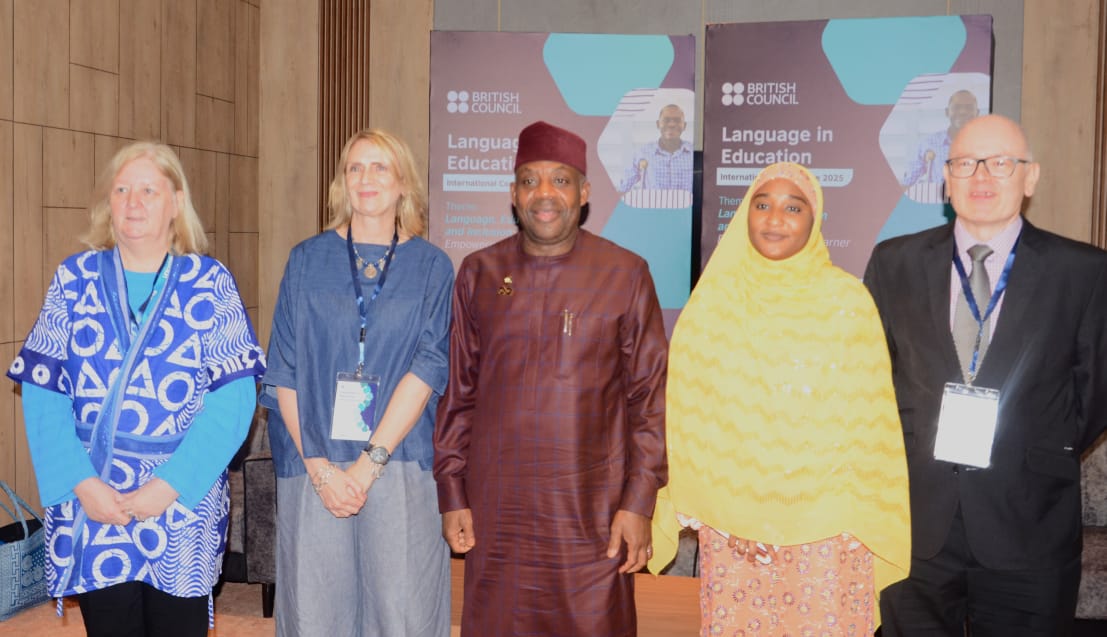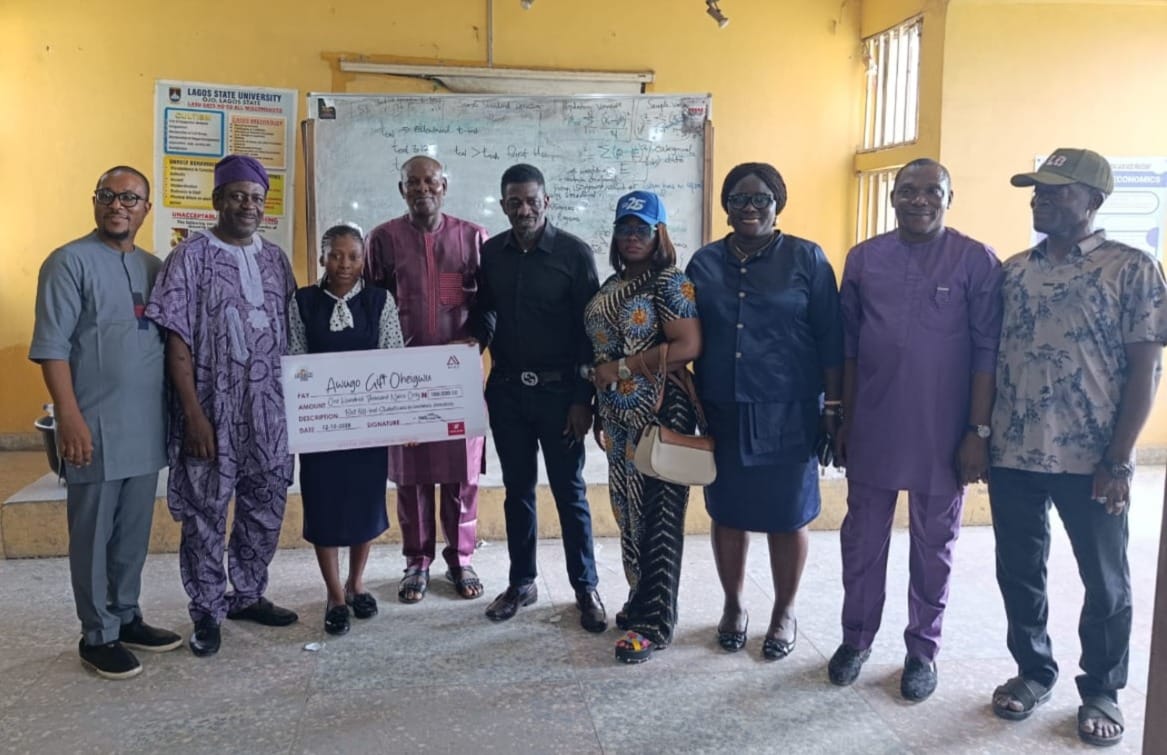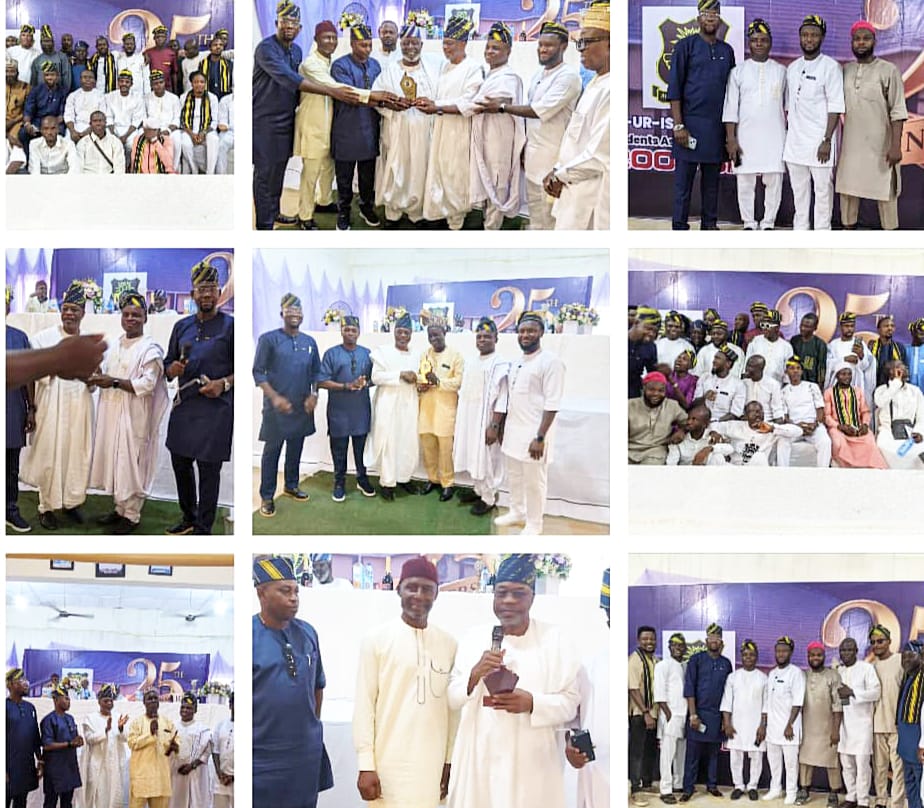British Council Collaborates With FG, Development Partners for Inclusive Education in Nigeria

L-R: UNICEF Chief of Education Nigeria, Vanessa Lee, Country Director British Council Nigeria, Donna McGowan, Minister of Education, Dr. Tunji Alausa, Minister of State for Education, Professor Suwaiba Said Ahmad and Director English Programmes, Sub-Sahara Africa, British Council, Julian Parry, during the Language in Education International Conference 2025 organised by British Council in Abuja
The British Council has collaborated with the Federal Government and Development Partners to collectively seek strategies to make education inclusive, equitable, and transformative across the region.
This was highlighted at the Language in Education International Conference 2025, themed “Language, Education and Inclusion: Empowering Every Learner”, where the Minister of Education, Dr. Maruf Tunji Alausa, reiterated the importance of effective partnership among educators, policymakers, and institutions to ensure that every child in Nigeria has access to quality education.
He further highlighted the pivotal role the British Council is playing, particularly through its Strengthening Teacher English Proficiency (STEP) programme, which has made significant strides in enhancing teachers’ capabilities.
The event is organised in collaboration with UNICEF, Plan International, FCDO PLANE, Sightsavers, Save the Children and Sterling One Foundation.
The Language in Education International Conference will be held from 12 to 13 November at the Abuja Continental Hotel, Abuja.
For the eighth consecutive year, the event will bring together policymakers, educators, researchers, and development partners around the world.
This two-day event will look at the central role of language in advancing inclusive and equitable education, focusing on how language affects learning outcomes, school participation and social inclusion.
Sub-Saharan Africa is home to more than 2,000 languages, and while multilingualism is a strength of the region, the language of learning and teaching (LoLT) continues to be a significant barrier for many learners.
The conference programme will explore key areas, including language and inclusive education, the importance of foundational learning through effective language applications, effective bilingual practices and the strengthening of teacher training and the use of appropriate pedagogy for language-diverse classrooms. It will also highlight the potential of technology in language education and assessment approaches to support equitable education systems.
Over the course of plenary sessions, interactive workshops, keynote addresses, and panel discussions, participants will share multidimensional evidence, case studies, and practical strategies for building language-responsive education systems that meet the needs of diverse learners.
“Language is more than a medium of education; it is also the foundation of inclusion. This conference is an opportunity to reimagine education systems that reflect Africa’s rich linguistic and cultural diversity and ensure every child has the chance to succeed,” said John Simpson, Senior Advisor of the English and School Education Programme in the British Council.
Also speaking on the conference, Director, English Programmes, Sub-Saharan Africa, British Council, Julian Parry, stated that the “British Council is a trusted partner who works alongside governments and institutions to help them achieve their own education goals. We do this by drawing on evidence, by sharing insights from over 100 countries, and by listening carefully to what works – and what might not work – in each unique context.”
The event is expected to raise awareness of language as a central feature of education systems, strengthen partnerships across governments, practitioners and development organisations, and provide a platform for shaping recommendations on effective language, teacher development and education practices.











